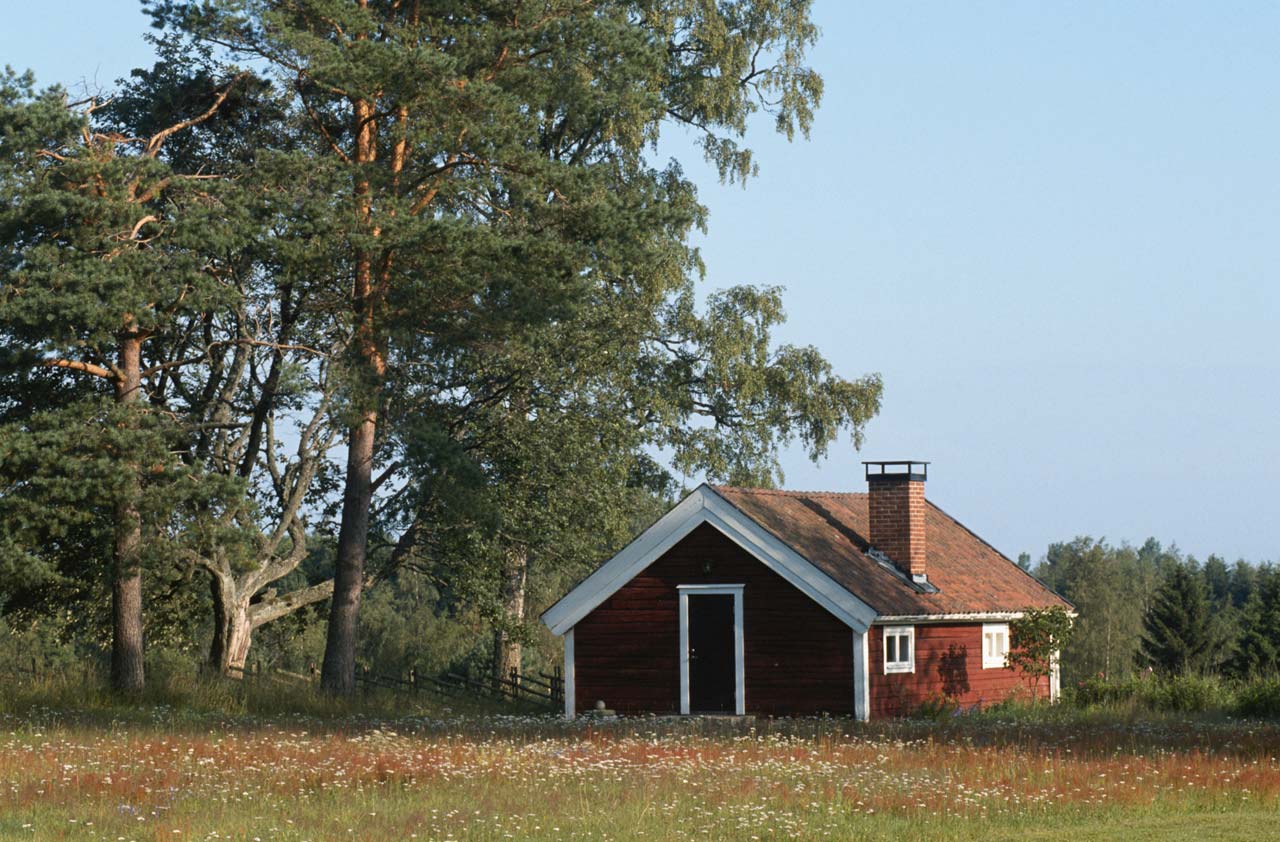Why I Would Never Retire in a Tiny Home
It's not that I hate tiny homes. I get the whole movement. But wouldn't saving enough for a really comfortable retirement be a better option?


Profit and prosper with the best of Kiplinger's advice on investing, taxes, retirement, personal finance and much more. Delivered daily. Enter your email in the box and click Sign Me Up.
You are now subscribed
Your newsletter sign-up was successful
Want to add more newsletters?

Delivered daily
Kiplinger Today
Profit and prosper with the best of Kiplinger's advice on investing, taxes, retirement, personal finance and much more delivered daily. Smart money moves start here.

Sent five days a week
Kiplinger A Step Ahead
Get practical help to make better financial decisions in your everyday life, from spending to savings on top deals.

Delivered daily
Kiplinger Closing Bell
Get today's biggest financial and investing headlines delivered to your inbox every day the U.S. stock market is open.

Sent twice a week
Kiplinger Adviser Intel
Financial pros across the country share best practices and fresh tactics to preserve and grow your wealth.

Delivered weekly
Kiplinger Tax Tips
Trim your federal and state tax bills with practical tax-planning and tax-cutting strategies.

Sent twice a week
Kiplinger Retirement Tips
Your twice-a-week guide to planning and enjoying a financially secure and richly rewarding retirement

Sent bimonthly.
Kiplinger Adviser Angle
Insights for advisers, wealth managers and other financial professionals.

Sent twice a week
Kiplinger Investing Weekly
Your twice-a-week roundup of promising stocks, funds, companies and industries you should consider, ones you should avoid, and why.

Sent weekly for six weeks
Kiplinger Invest for Retirement
Your step-by-step six-part series on how to invest for retirement, from devising a successful strategy to exactly which investments to choose.
You may dream of a tiny home in retirement. You, your partner, and 250 square feet of warm, dry space -- a fold-up bed, perhaps, Wi-Fi for the laptop, and a kitchenette.
Here's what I see: Oh, the claustrophobia. What, no room for a big-screen TV? And marital terror. A place so small and confined that at night "wives feel the edge of the carving knife and study their husbands' necks," as crime novelist Raymond Chandler famously wrote.
After all, we are talking about a space half as big as Ralph and Alice Kramden's cramped tenement in "The Honeymooners." Ralph and Alice loved each other very much. But they fought...a lot. No thanks. I want to live happily ever after in retirement.
From just $107.88 $24.99 for Kiplinger Personal Finance
Become a smarter, better informed investor. Subscribe from just $107.88 $24.99, plus get up to 4 Special Issues

Sign up for Kiplinger’s Free Newsletters
Profit and prosper with the best of expert advice on investing, taxes, retirement, personal finance and more - straight to your e-mail.
Profit and prosper with the best of expert advice - straight to your e-mail.
All this is not to say I don't get the growing fascination with tiny homes. This is a movement, all right, with its own websites, such as TheTinyLife.com, and two popular cable TV shows -- HGTV's Tiny House Big Living and A&E's Tiny House Nation -- where couples explore "what it really means" to downsize to a living space the size of a standard kitchen or bedroom.
We've covered the trend, too, here at Kiplinger.com, and hundreds of thousands of readers have devoured our slide shows featuring different models of tiny homes. (See our new Tiny Homes for Retirees slide show.)
From first-time home buyers wanting to minimize their environmental footprint to empty nesters looking to downsize and economize as they age in place, people seem to be mesmerized with the idea of taking their living quarters to the extreme opposite of opulent mansions with media rooms and wine cellars. "The demographics are, well, wildly American," says Erik Blair, a tiny home consultant/builder and founder of Project Eden, a non-profit trying to create a tiny house ecovillage on the Hawaiian island of Maui. (Blair's title, by the way, is "Director of Happiness." Love it.)
Cost is the major factor across all demographic groups. A standard 186-square-foot tiny home costs a mere $23,000 if built by the owner; fancier pre-fabs or builder-constructed units can run in the $50,000-$70,000 range.
Quality building materials and beautiful designs definitely differentiate the genre from trailer homes and RVs. Yet, tiny homes often can be as portable as trailers. Some come on wheels. Some can be loaded on flatbeds and moved easily. "In Hawaii, we have a lava problem," Blair notes. "Traditional building methods prevent that land from being economically developed, so the land is cheap and available."
Typically, owners can move around on lava flows and "if there is a threat of a new lava flow, they can move temporarily elsewhere. Same with tsunamis."
Tiny house people are no dummies -- they're twice as likely to have a college degree than the average U.S. homeowner, with a slightly higher per-capita household income of $42,038. For older, educated folks who haven't socked away much money, yet want a more upscale lifestyle in retirement, the prospect of living mortgage/rent-free can pack major appeal (68% of all tiny home owners have no mortgage vs. just 29% of traditional homeowners).
Blair provides a vivid example of a single woman he has worked with who rents a tiny home on a Hawaiian farm, saving $800 a month compared to average housing and living costs in her county. Let's do the math: If she were to invest that savings in, say, a 5% interest savings mechanism for 30 years, she would have $665,000. "That's pretty significant," Blair says. I like the way he thinks -- very Kiplinger.
Finally, there's all that stuff you can’t keep anymore. "Hoarding is unheard of in tiny houses," Blair says. "It takes 15 minutes to clean your entire house. Spring cleaning doesn't take all spring. Have to clean out the attic? No worries, there isn't one."
My question still, though, is why go to such an extreme? With any downsizing, you'll be forced to either donate, gift, store, or throw away your accumulated clutter. And because they are small and the construction venue so new, tiny homes often fly under the radar of building codes and tax assessors, setting up potential future financial problems. The so-called "granny flats" designed to help care for the aging parents of baby boomers built in backyards across America are increasingly running afoul of city and county building ordinances.
No thanks. I will not be living in a tiny home in my retirement. Give me at least a three-bedroom, two-bath, 1,600-square-foot condo. Preferably with water views.
The romance of living in a tiny space? I'll go camping. Probably by myself. My wife hates camping.
Profit and prosper with the best of Kiplinger's advice on investing, taxes, retirement, personal finance and much more. Delivered daily. Enter your email in the box and click Sign Me Up.

-
 Nasdaq Leads a Rocky Risk-On Rally: Stock Market Today
Nasdaq Leads a Rocky Risk-On Rally: Stock Market TodayAnother worrying bout of late-session weakness couldn't take down the main equity indexes on Wednesday.
-
 Quiz: Do You Know How to Avoid the "Medigap Trap?"
Quiz: Do You Know How to Avoid the "Medigap Trap?"Quiz Test your basic knowledge of the "Medigap Trap" in our quick quiz.
-
 5 Top Tax-Efficient Mutual Funds for Smarter Investing
5 Top Tax-Efficient Mutual Funds for Smarter InvestingMutual funds are many things, but "tax-friendly" usually isn't one of them. These are the exceptions.
-
 457 Plan Contribution Limits for 2026
457 Plan Contribution Limits for 2026Retirement plans There are higher 457 plan contribution limits in 2026. That's good news for state and local government employees.
-
 Medicare Basics: 12 Things You Need to Know
Medicare Basics: 12 Things You Need to KnowMedicare There's Medicare Part A, Part B, Part D, Medigap plans, Medicare Advantage plans and so on. We sort out the confusion about signing up for Medicare — and much more.
-
 The Seven Worst Assets to Leave Your Kids or Grandkids
The Seven Worst Assets to Leave Your Kids or Grandkidsinheritance Leaving these assets to your loved ones may be more trouble than it’s worth. Here's how to avoid adding to their grief after you're gone.
-
 SEP IRA Contribution Limits for 2026
SEP IRA Contribution Limits for 2026SEP IRA A good option for small business owners, SEP IRAs allow individual annual contributions of as much as $70,000 in 2025, and up to $72,000 in 2026.
-
 Roth IRA Contribution Limits for 2026
Roth IRA Contribution Limits for 2026Roth IRAs Roth IRAs allow you to save for retirement with after-tax dollars while you're working, and then withdraw those contributions and earnings tax-free when you retire. Here's a look at 2026 limits and income-based phaseouts.
-
 SIMPLE IRA Contribution Limits for 2026
SIMPLE IRA Contribution Limits for 2026simple IRA For 2026, the SIMPLE IRA contribution limit rises to $17,000, with a $4,000 catch-up for those 50 and over, totaling $21,000.
-
 457 Contribution Limits for 2024
457 Contribution Limits for 2024retirement plans State and local government workers can contribute more to their 457 plans in 2024 than in 2023.
-
 Roth 401(k) Contribution Limits for 2026
Roth 401(k) Contribution Limits for 2026retirement plans The Roth 401(k) contribution limit for 2026 has increased, and workers who are 50 and older can save even more.